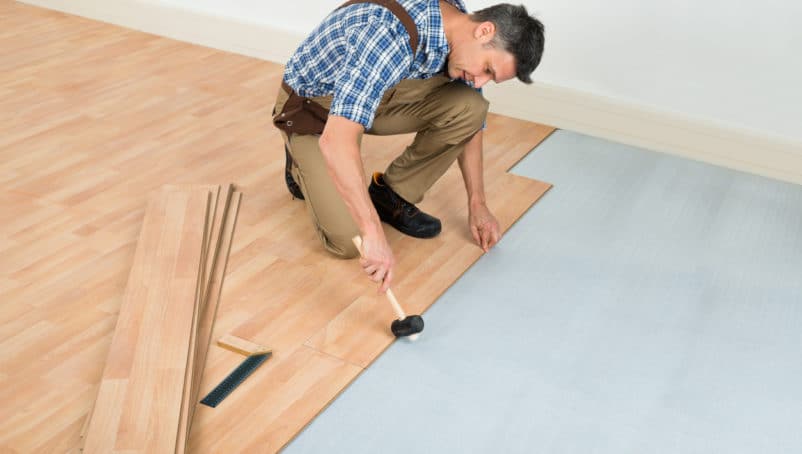Starting a flooring installer business can be a big investment. But with some planning, it can be very rewarding, both financially and personally. It’s important to have the right information from the very first step toward becoming a flooring installer, so we are happy to present some of the most critical flooring installer business tips to get you started.
Rely on Your Own Two Hands
As an independent flooring installer, you’ll have all the advantages of being your own boss: you choose your hours and focus on the jobs you like. With flooring installation specifically, you won’t be stuck behind a desk. You will be working with your hands and both you and your clients will be able to appreciate the beautiful outcome of skilled handiwork. Despite the skill involved, becoming a flooring installer doesn’t require any formal training. Some professionals choose to get formal certification in carpentry but most simply work alongside a more experienced floor installer for a while to get a feel for the process and the materials.
Get to Know the Neighbors
Building relationships with other people in the construction industry is a good flooring installer business idea. Many clients will want you to provide the flooring materials you install and so connections with merchants and building suppliers are invaluable. Local contractors and residential building managers can be a great source of business and are always on the lookout for people who can do high-quality flooring installation for their own clients. Of course, other flooring installers are a great source of information about prices, regulations, and resources in your area, but they’re also the competition.
Have a Plan
Nobody is born knowing how to start a flooring installer business. That’s why we recommend learning from someone more experienced before starting out. A lot of flooring installers take on assistants, apprentices, or entry-level employees. The manufacturers of some materials also offer training and you can check out the
National Wood Flooring Association for training and certification with wood flooring specifically. Once you’ve spent some time learning the technical skills involved, you can write your own business plan. Begin by deciding what services you’re going to offer: will you install all kinds of flooring or specialize in a particular material? Will you market yourself for small residential jobs or only larger construction? Using those decisions, write a business plan that includes:
- Initial expenses for equipment – don’t forget that you’ll have to transport large amounts of materials to job sites
- Prices that include the cost of materials as well as your time and labor
- A detailed marketing plan
- Clear financial goals and how many jobs you’ll need to reach them
- Local flooring installer business requirements for licensing and insurance

Play by the Rules
Flooring installer requirements are different in every state. You may need to apply for a flooring installer license or a more general business license and you’ll have to register your business with the IRS and other relevant federal agencies. Once you’ve done these things, you can start thinking about the appropriate
flooring installer insurance.
Be Prepared for Anything
Being a flooring installer is a very physical job. It relies on your body’s ability to do the work. You’re also doing messy work in other people’s spaces. That’s why bodily injury and property damage
coverage are particularly important aspects of your insurance as a flooring installer. Make sure to have an insurance policy that is tailored to your specific needs and doesn’t make you pay for things you don’t want.
Being a flooring installer is challenging, hands-on work that lets you be your own boss and complete projects you can take pride in. Learn the skills, make a thorough plan, and start out on the right foot focused on doing great work.




